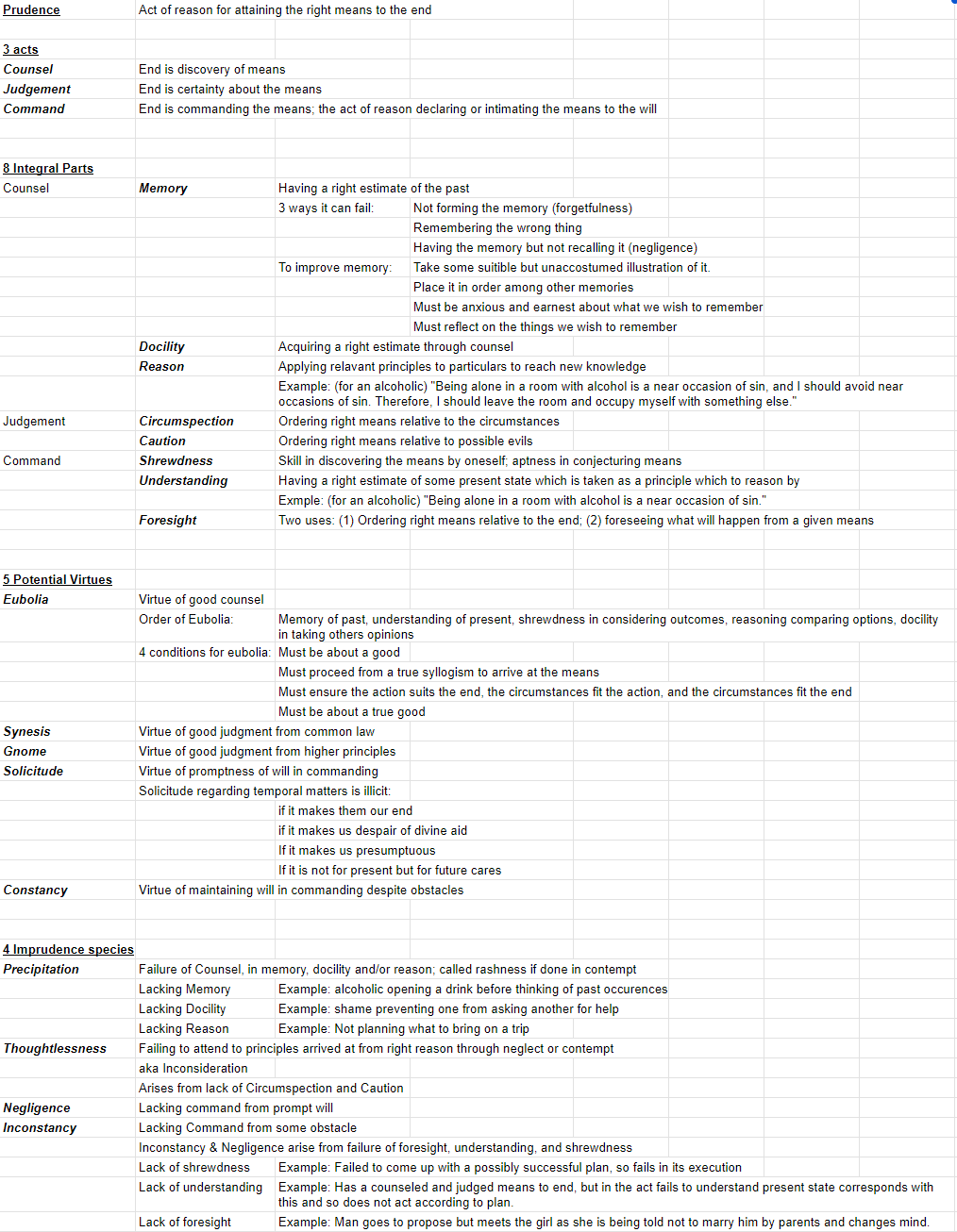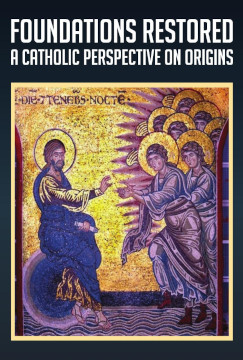- Welcome to St. Isidore forum.
Recent posts
#31
Theology / According to sedeprivationism,...
Last post by Geremia - December 19, 2023, 05:21:35 PMAccording to sedeprivationism, does a material pope have temporal authority?
Update: John of St. Thomas (CURSUS THEOLOGICUS In Summa Thelologicam D. Thomas, Tomus VII, IN SECUNDAM SECUNDÆ DIVI THOMÆ, Quæstio I, DE FIDE, DE AUCTORITATE SUMMI PONTIFICIS, Parisiis Ludovixus Vivês, Editor, 1886, p. 207, sq.) seems to think a heretical pope can exercise (albeit illegitimately/tyrannically) temporal power:
Update: John of St. Thomas (CURSUS THEOLOGICUS In Summa Thelologicam D. Thomas, Tomus VII, IN SECUNDAM SECUNDÆ DIVI THOMÆ, Quæstio I, DE FIDE, DE AUCTORITATE SUMMI PONTIFICIS, Parisiis Ludovixus Vivês, Editor, 1886, p. 207, sq.) seems to think a heretical pope can exercise (albeit illegitimately/tyrannically) temporal power:
Quote from: John of St. Thomas[The Church] may defend itself, not by deposing him [a heretical pope], but by repelling him with force if he proceeds with violence or tyrannically, if, for example, he wished to do something against justice by the force of arms, one could repulse him with arms ; and similarly, if he were to establish something against good morals he is not to be obeyed, because an unjust law does not oblige.
#32
Catholic Resources / Re: Martyn Swain's complete au...
Last post by Geremia - December 19, 2023, 04:58:44 PM #33
Catholic Resources / Re: Martyn Swain's complete au...
Last post by Wenura - December 09, 2023, 02:43:40 PMWorks! Thank you.
#34
Philosophy / Re: Prudence Question
Last post by tacf - November 26, 2023, 03:00:22 PMNice. Follow up question- how is inconstancy under imprudence then?
My understanding:
Solicitude- due promptness of the will, contained under foresight (ii-ii q48 a1 repl obj 5)
Negligence- failure of command due to lack of promptness of the will to the act itself
Constancy- continuance of the reason directing the will despite external obstacles
Inconstancy- failure of reason to direct the will from external obstacles
Effeminacy- failure of the will from external obstacles
Endurance- virtue of the will continuing despite evils
I will probably change all this once I read the relevant sections more.
St Thomas's direct answer is "
Reply OBJ 1: The good of prudence is shared by all the moral virtues, and accordingly perseverance in good belongs to all moral virtues, chiefly, however, to fortitude, which suffers a greater impulse to the contrary."
Ii-ii q53 a5 repl obj 1
But if he was here in person I would ask how the virtue is under fortitude and vice under prudence
My understanding:
Solicitude- due promptness of the will, contained under foresight (ii-ii q48 a1 repl obj 5)
Negligence- failure of command due to lack of promptness of the will to the act itself
Constancy- continuance of the reason directing the will despite external obstacles
Inconstancy- failure of reason to direct the will from external obstacles
Effeminacy- failure of the will from external obstacles
Endurance- virtue of the will continuing despite evils
I will probably change all this once I read the relevant sections more.
St Thomas's direct answer is "
Reply OBJ 1: The good of prudence is shared by all the moral virtues, and accordingly perseverance in good belongs to all moral virtues, chiefly, however, to fortitude, which suffers a greater impulse to the contrary."
Ii-ii q53 a5 repl obj 1
But if he was here in person I would ask how the virtue is under fortitude and vice under prudence
#35
Philosophy / Re: Prudence Question
Last post by Geremia - November 26, 2023, 02:00:52 PMPriest's sermon today mentioned prudence in the context of the parable of the 10 virgins (Gospel for yesterday's feast of St. Catherine of Alexandra and Wednesday's of St. Cecilia).
Fr. McNabb, The Church and the Land p. 149:
Fr. McNabb, The Church and the Land p. 149:
Quoteit is imperative that Catholics, who alone have the ultimate principles of solution, shall also have the proximate principles of solution.This is prudence: knowing what means to chose to achieve a given end.
#36
Catholic Resources / Re: Martyn Swain's complete au...
Last post by Geremia - November 25, 2023, 10:11:44 AMQuote from: Wenura on November 25, 2023, 04:49:56 AMNo audiobook linksThat link does not download "Summa Theologica (vol. 1)_ Par - Aquinas, St. Thomas & Shapcote_9410.m4b" for you?
Try this link (albeit not as fast).
#37
Philosophy / Re: Prudence Question
Last post by Geremia - November 25, 2023, 09:57:23 AMConstancy is an integral part of fortitude, not prudence.
#38
Catholic Resources / Re: Martyn Swain's complete au...
Last post by Wenura - November 25, 2023, 04:49:56 AMNo audiobook links
#39
Philosophy / Re: Prudence Question
Last post by tacf - November 24, 2023, 07:26:04 PMOk. I have since read the relevant section in Fr Chad Ripperger's book "Introduction to the Science of Mental Health". It seems everything can be categorized if you ask "where along the course of an act of prudence (going through subordinate acts counsel, judgement and command sequentially) does a particular part become necessary for a subordinate act to succeed?" Anyways, the categorization is following Q53A2 strictly, as that is where he lists all explicitly in categories, which I assume would mean that is where he is speaking most strictly about categorizations.
Anyways, here's a table using Fr. Ripperger as a counsel for understanding the relevant section of the Summa:

Anyways, here's a table using Fr. Ripperger as a counsel for understanding the relevant section of the Summa:
#40
Philosophy / Integral Parts of Prudence
Last post by Geremia - November 24, 2023, 10:51:42 AMIt's fascinating that memory in an integral part of prudence. Thomist psychologist Kevin Vost defends memorization in his Memorize the Reasons! Defending the Faith with the Catholic Art of Memory (memorize catechisms with Anki!) and Memorize the Latin Mass!: How to Remember and Treasure its Rites (using the "method of loci", places). The Medieval Craft of Memory and The Art of Memory mention St. Thomas's opuscule De memoria et reminiscentia.
Fr. Antonio Royo Marín, O.P., Theology of Christian Perfection p. 43 has a good diagram:

Ibid. pp. 372-3:
Fr. Antonio Royo Marín, O.P., Theology of Christian Perfection p. 43 has a good diagram:
Ibid. pp. 372-3:
Quote from: Royo Marín, O.P.Integral Parts of Prudence
Eight integral parts are required for the perfection of the virtue of prudence, five of which pertain to the intellectual aspect and three to the practical aspect. Each and every part will not necessarily function in every instance of the exercise of the virtue, but all must be possessed so that they will function when particular circumstances require. The eight parts are:
- Memory of the past, so that one may learn from experience what is to be done or avoided in particular circumstances.
- Understanding of the present, so that one may judge whether a given action is lawful or unlawful, morally good or evil, fitting or unfitting.
- Docility, so that those who lack experience may accept the counsel and advice of those who have experience.
- Sagacity, so that one may act rightly in urgent cases when time or circumstances do not permit delay.
- Reasoning power, so that when time permits, one may act after the required consideration and reflexion.
- Foresight, so that one may judge the immediate means in view of the end or goal which is sought.
- Circumspection, so that one may take into consideration the special circumstances which surround a given act, as to persons, places, etc.
- Precaution, so that one will take into consideration the possible obstacles from without, or one's own weakness or incapacity in view of a given action.






